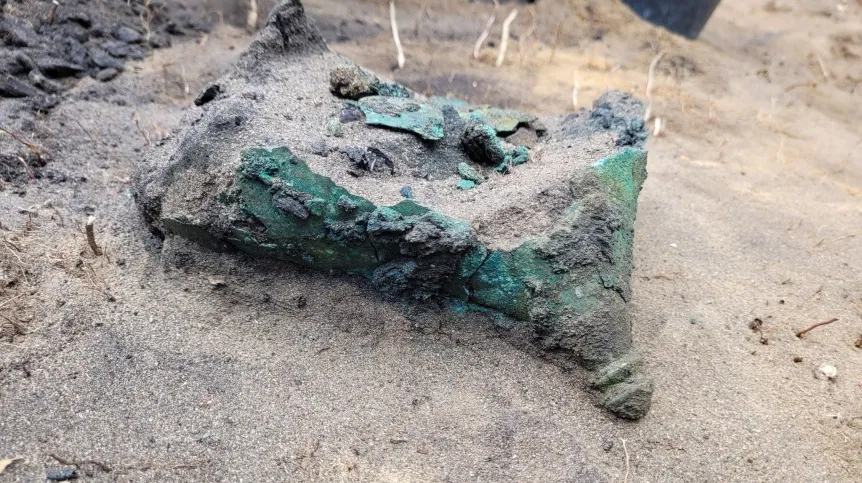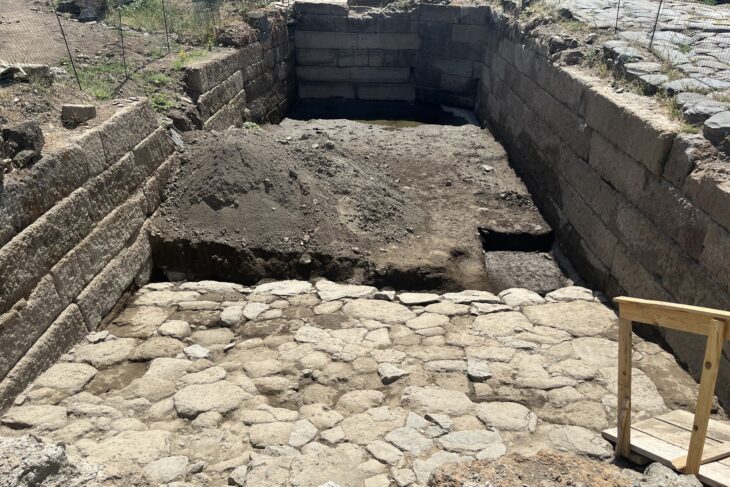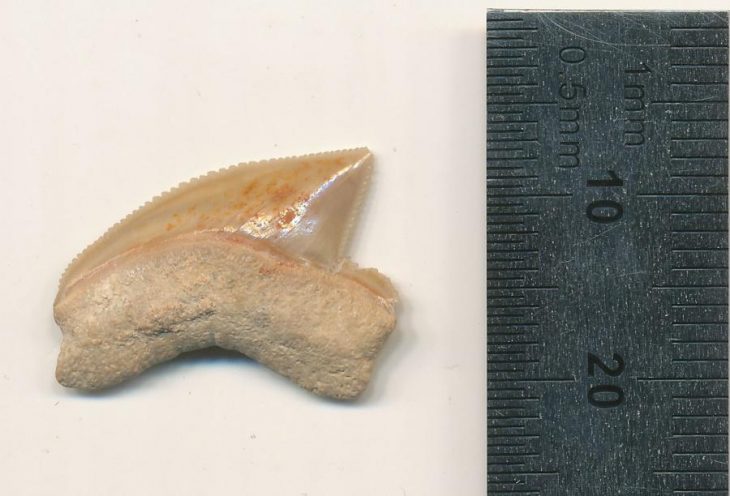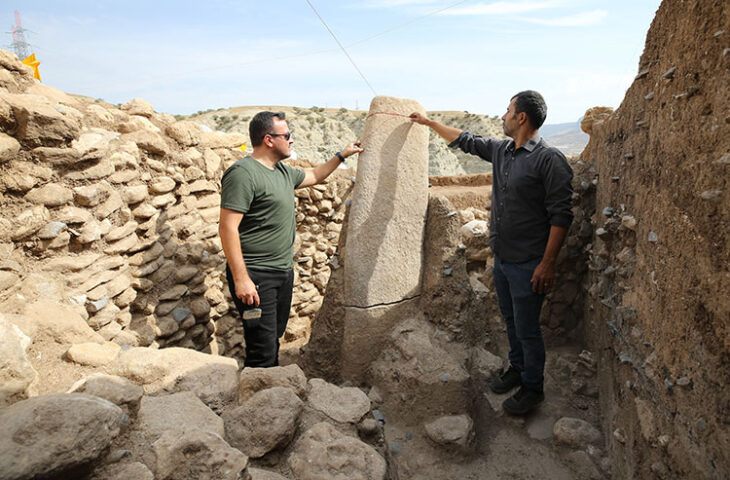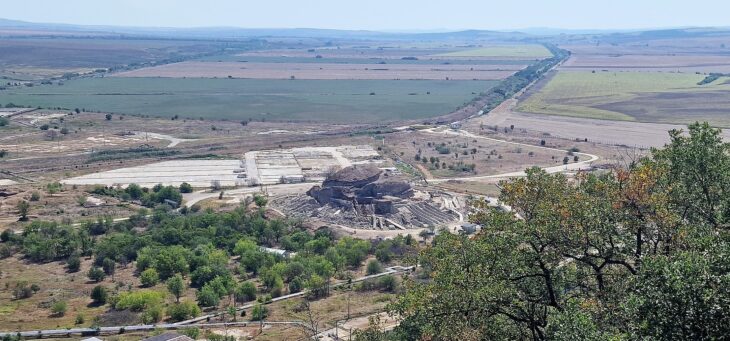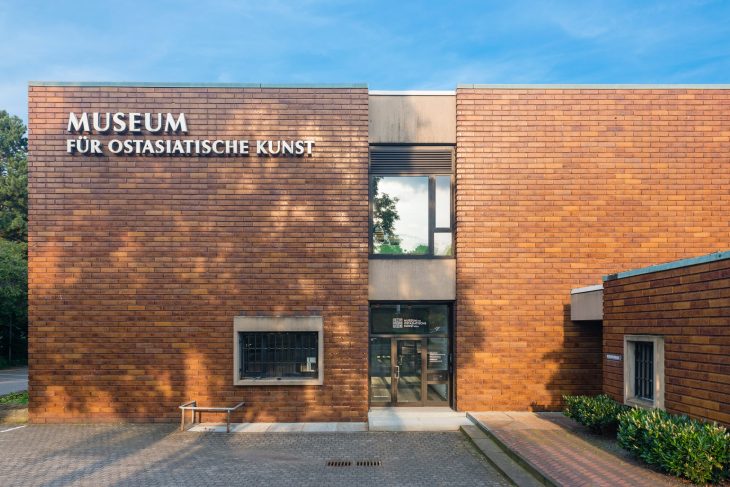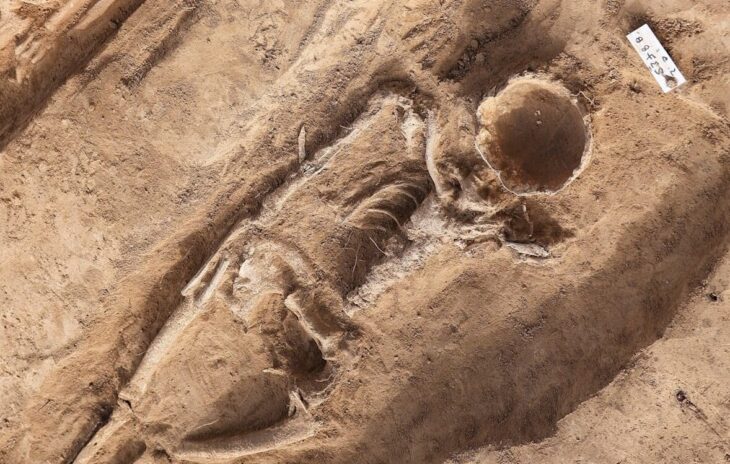Archaeologists have discovered a rare Bronze helmet from the 4th century BC, along with 300 Celtic treasures, including axes, spearheads, a sword, and decorative horse harness in Mazovia, Poland.
Dr. Bartlomiej Kaczynski, who led the research, said the helmet found was a rare artifact and an example of advanced Celtic metallurgy.
According to experts, only a handful of such artifacts exist worldwide, making this an extraordinary find.
Research at the archaeological site “Łysa Góra” in the Chorzele commune was conducted by scientists from the State Archaeological Museum in cooperation with the Faculty of Archaeology of the University of Warsaw. Since spring, they have discovered about 300 different monuments in this place.
A bronze Celtic helmet from the 4th century BC was discovered in one of the archaeological sites along with four iron axes and a half-axe. This is the first find of this type from the Polish lands. So far, only a helmet from Siemiechów, dating to the 1st century BC, has been discovered.
📣 Our WhatsApp channel is now LIVE! Stay up-to-date with the latest news and updates, just click here to follow us on WhatsApp and never miss a thing!!
“This is the first helmet of its kind found in Poland, and the oldest ancient helmet ever uncovered in the country,” Wojciech Borkowski, deputy director of the State Archaeological Museum in Warsaw, as saying.
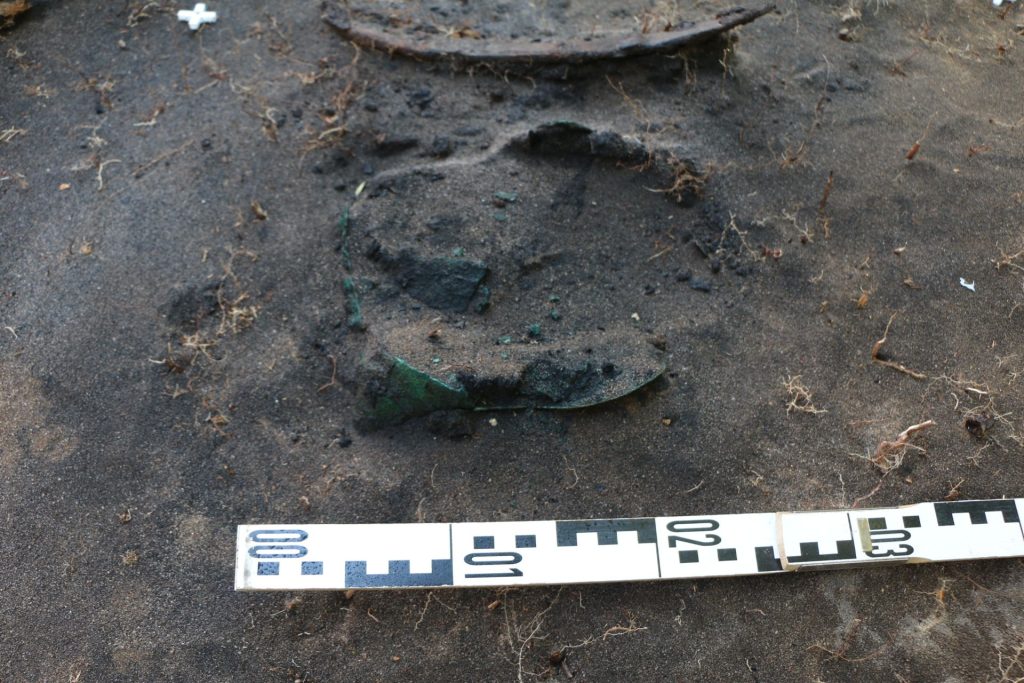
A defensive settlement spanning approximately three hectares was discovered by archaeologists at the Łysa Góra site, where the helmet was discovered after five weeks of excavation. The presence of burn marks suggests possible conflicts between the Celts and the Vandals.
Łysa Góra is a multi-phase settlement site. The earliest signs of occupation date back to the Lusatian culture, a group of people who lived in Poland, parts of the Czech Republic, Slovakia, eastern Germany, and western Ukraine in the late Bronze to early Iron Age.
Before distinguishing characteristics began to be discovered that proved the helm was an early La Tène helmet, it was initially thought to be a bronze vessel. The La Tène culture was a European Iron Age society that flourished from approximately 450 BC until the Roman Republic’s expansionists seized their ancestral lands in the first century BC.
Borkowski highlighted the global significance of the discovery, noting that only a few such helmets exist worldwide. This discovery disproves earlier theories that the Celts were restricted to southern Poland and indicates that they were also present in the northern region of Mazovia.
Archaeologists have had to reconsider the amber trade routes of the early Iron Age and the wider European trade networks due to the variety of artifacts found, such as bronze ornaments and iron tools. According to experts, the discovery holds significance not only for Poland but for the entirety of Central Europe.
Due to the helm’s poor condition, it has been sent to the Museum Conservation Department of the PMA for restoration, which is expected to take several months.
Photo: Facebook.com/Państwowe Muzeum Archeologiczne

